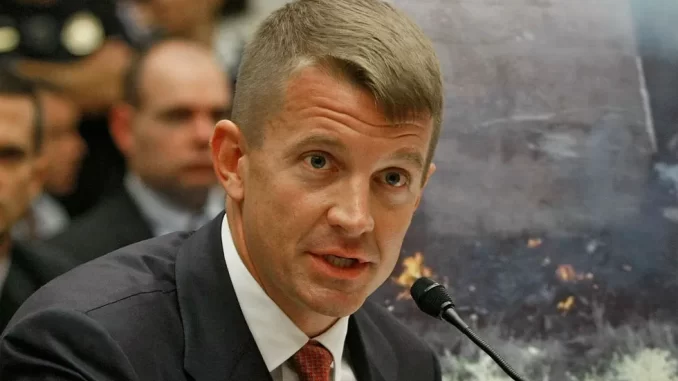
Neil W. McCabe — OAN National Political Correspondent
UPDATED 2:51 PM PT – Wednesday, September 7, 2022
(MIDDLEBURG, VA.) One year after the fall of Kabul, the founder of Blackwater told One America News his warnings were about Afghanistan were ignored by incompetent military leaders and national security professionals.
“Because the Pentagon is all about money and power, as any bureaucracy is, and so they mobilized and moved in—and when Bagram becomes a saluting zone and a no-beard zone and a starched khaki zone, all progress stopped,” said Erik Prince, whose book “Civilian Warriors,” told the story of his private military company and how he brought private enterprise thinking to the war on terror.
“In addition to the closed-minded generals who were constantly rotated in and out of theater, the highly educated American national security professionals were equally clueless about Afghanistan,” the Navy SEAL veteran said.
“They abysmally failed, and they’ve wasted trillions of dollars and thousands of our sons’ and daughters’ lives and limbs,” he said.
Prince said one galling example of American mismanagement of the war in Afghanistan was the refusal to reboot and develop the Soviet-era oil production in the Angot field.
Instead, the U.S. insisted on importing oil to support the war with massive markups that included bribes to the Taliban as we were fighting the Taliban, he said.
“Up until the last day, all the energy supply that the United States and NATO needed in Afghanistan was trucked in,” he said.
“It was boated down from the Med, up by truck from Karachi, up through the Taliban areas, paying a huge toll. About a third of the Taliban’s operating budget was collecting tolls on all those U.S. trucks,” he said.
The patriot businessman said it is a tragedy that one year after the fall of Kabul, there are still Americans and American allies left behind, and the country has become the terrorist safe haven the war was fought to prevent.
“I would say between citizens and Green Card holders, it’s definitely in the thousands yet, so there is genuine despair,” the Hillsdale College graduate said.
“It’s going to be a rough winter there. With the cost of energy up globally and the economy in Afghanistan effectively frozen, it’s going to be a rough winter,” Prince said.
“I would say you’ll see some significant fighting once the fighting season starts again come May, June of next year because there’s a lot of people that are just not going to take it anymore.”

